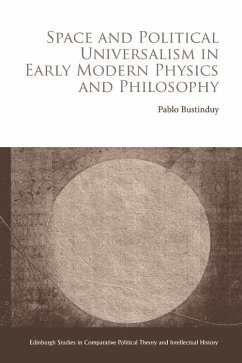
Redirecting Radical Democracy (eBook, PDF)
From Antagonism to Alienation
Versandkostenfrei!
Sofort per Download lieferbar
69,95 €
inkl. MwSt.
Weitere Ausgaben:

PAYBACK Punkte
35 °P sammeln!
Today, alienation manifests itself primarily as precarisation and deprofessionalisation. When the subject's work security or professional autonomy is undermined, relations - not only to others, but also to one''s self - can become inhibited. This book shows that while alienation poses serious problems to modern democracies, it is a form of social suffering that is particularly difficult for democratic theory - preoccupied by the political - to address. The book highlights that not even radical democracy, which emphasises the importance of social resistance, can include the alienated. The autho...
Today, alienation manifests itself primarily as precarisation and deprofessionalisation. When the subject's work security or professional autonomy is undermined, relations - not only to others, but also to one''s self - can become inhibited. This book shows that while alienation poses serious problems to modern democracies, it is a form of social suffering that is particularly difficult for democratic theory - preoccupied by the political - to address. The book highlights that not even radical democracy, which emphasises the importance of social resistance, can include the alienated. The author shows this is not merely due to the historical emergence of radical democracy and its turn away from traditional socialism, but also to a deeper problem in the theory itself. Helander argues that in order to address alienation, radical democracy - as both normative theory and political strategy, must be reformulated starting with its deep assumptions about the subject.
Dieser Download kann aus rechtlichen Gründen nur mit Rechnungsadresse in A, B, BG, CY, CZ, D, DK, EW, E, FIN, F, GR, HR, H, IRL, I, LT, L, LR, M, NL, PL, P, R, S, SLO, SK ausgeliefert werden.













